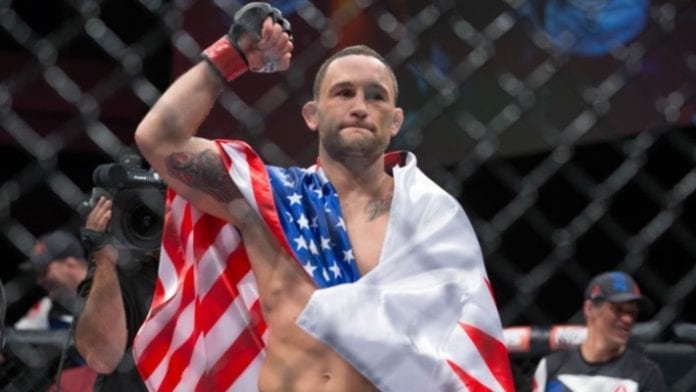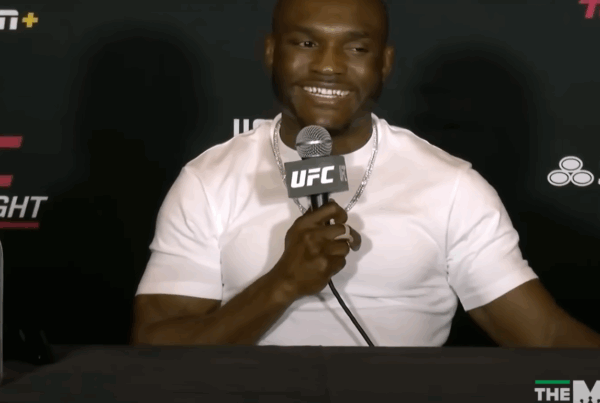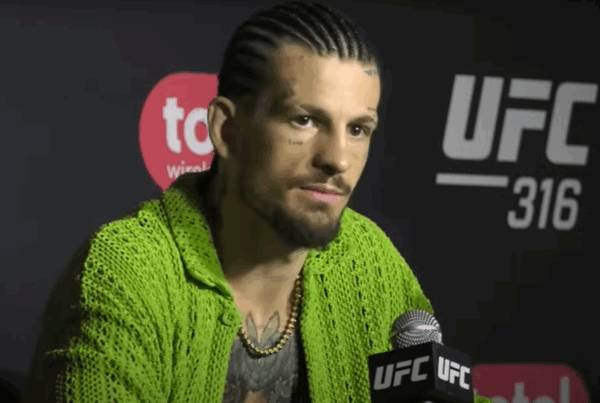Less than a month remains until UFC 222 in the T-Mobile Arena in Las Vegas, Nevada, a card which was intended to be topped by the featherweight title clash between Max Holloway and Frankie Edgar.
Edgar, the former UFC lightweight champion, was in line for a shot at the undipsuted 145-pound title for the first time since 2013 but, as fate would decree, the New Jersey native will have to wait that little bit longer for his shot at the gold. Max Holloway announced last week that he has been forced to withdraw from the bout through injury, once again dashing Edgar’s hopes at regaining championship gold but also causing a significant booking issue for the UFC matchmakers.
Currently, a heavyweight clash between Andrei Arlovski and Stefan Struve sits atop the (announced) card for the March 3rd event. While that is a competitive match-up, even the most ardent UFC officials would struggle to convince that this is a bout worthy of top billing at a pay-per-view event.
Elsewhere on the card there is an intriguing middleweight bout between CB Dolloway and Hector Lombard. Grappling phenom Mackenzie Dern will also make her debut on the card.
However, without a top billed attraction UFC 222 is a very tough sell to the American PPV audience — particularly at 60 bucks a pop.
Reports have suggested that the UFC have been scrambling to source a new main event for the card. A bantamweight title rematch between TJ Dillashaw and Cody Garbrandt was mooted. The latest, via Ariel Helwani, is that the UFC are hoping to have Edgar remain on the card and instead face rising featherweight sensation Brian Ortega.
And, once again according to Helwani, if none of the above quick fixes come to fruition, the UFC is considering pulling the plug on the event altogether, a last resort used by the promotion only in the rarest of scenarios.
So, lots still up in the air. Last resort is to cancel the card. They’d rather not turn it into a Fight Night but they’ll have to if they can’t produce a title fight and right now there just aren’t many title fight options for less than a month away. Developing.
— Ariel Helwani (@arielhelwani) February 6, 2018
Since WME-IMG took over promotional responsibilities of the UFC as part of their multi-billion dollar purchase of the UFC from the Fertitta Brothers nearly two years ago, the organisation appears to have moved at a slightly different pace when compared to the previous administration. Events nowadays come thick and fast, yet the promotion’s ability to fill those cards has become a more difficult task.
Matchmakers Sean Shelby and Mick Maynard are often left scrambling to paper over the cracks of an injury-ravaged event just weeks away, potentially taking their focus from cards two, three or even four months in the future. This isn’t to discredit Shelby or Maynard, they are absolutely two of the best in the business at what they do, but with the UFC’s event schedule expanding year or year, and the roster of fighters doing the same (along with the addition of new weight classes), their job is becoming increasingly difficult.
As Helwani notes, there is a chance that UFC 222 could be commuted to a Fight Night event which would mean that the card would be free-to-air — a step that the UFC would only take if they have cause to believe that the selling points from the card they anticipated holding doesn’t resemble what it would be in actuality.
The last time that the UFC cancelled a pay-per-view card was in August 2014 after the main event between José Aldo and Chad Mendes fell apart. In 2016, the UFC nixed an event in the Philippines after main event fighter BJ Penn sustained an injury.
With the focus on making the Edgar vs. Ortega bout, it appears a longshot that the event will be cancelled but all this short notice scrambling to save an event really does speak to how the UFC don’t appear to have much of a Plan B when one of their signature bouts falls through.



